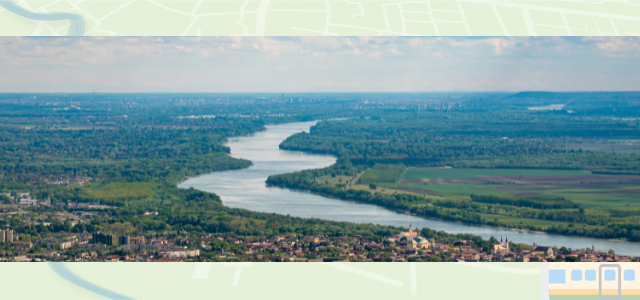GWP Senior Network and Transboundary Water Cooperation Specialist Yumiko Yasuda, who moderated the event, said that the MOOC has attracted around 2,500 participants from 150 countries in its first year, which shows the relevance and need for more knowledge around transboundary issues. Each of the interactive online sessions held so far have generated even more interest for the MOOC, and the session on 21 September was no exception.
Patricia Wouters cochaired the event together with Otto Spijkers– both representing Wuhan University’s Academy of International Water Law – and they set out the context. Wouters referred to the Charter of the United Nations, which stipulates an overarching need to settle international disputes by peaceful means. This includes an indicative list of measures to use in disputes, such as negotiations, enquiry, mediation, conciliation, arbitration, judicial settlement, resort to regional agencies, or other peaceful means.
"What we need to take away today is that there are three fundamental principles of international dispute settlement, which includes settling water disputes: 1) it must be done by peaceful means, 2) consent is required by all parties when selecting the means, and 3) there are a broad range of options when settling disputes," explained Wouters.
The three speakers at the event were Lingjie Kong, Professor of International Law and Associate Dean for Research and International Cooperation at the China Institute of Boundary and Ocean Studies, Wuhan University, Ximena Fuentes, Associate Professor of Public International Law at the Faculty of Law of the University of Chile, and Gábor Baranyai, Senior Lecturer, NUPS, Hungary.
Lingjie Kong shared an overview of the major international cases on water dispute settlement, going back to as far as 1929. "The subject matter of all these cases broadly fall into four categories: river boundaries; the definition and nature of the transboundary water - meaning whether the water is transboundary or international; navigational uses; and non-navigational uses and protection," said Kong.
Ximena Fuentes presented the dispute between Chile and Bolivia over the status and use of the waters of the Silala River, which is an international watercourse with origins in Bolivia but that runs into Chile. The conflict started in 1999, when Bolivia started denying the status of the Silala as an international river. While Bolivia later agreed that the Silala is indeed international, the case evolved to being about artificial flows from the Silala and whether Chile has the right to use these. The case is pending.
Gábor Baranyai talked about the Gabčíkovo-Nagymaros project in Hungary and Slovakia. This is a project that officially started in 1977, which turned into a dispute in the early 1990s and received a judgement by the International Court of Justice in 1997. However, the judgement contained contradictory statements on some key elements, and resulted in an ongoing dispute since then. Baranyai has been involved with the case since 2004: "It's a very painful, slow-moving process, but while tensions were running high at one point, the negotiations have now reached the status of an ‘acceptable frozen conflict’ - none of the states are prepared to put up a very big fight. But the case remains open and we are still negotiating."
Following the presentations, the speakers answered some of the questions that came in prior to and during the event, and break-out rooms were held to go deeper into different aspects of the topic.
Watch the full recording:
Two more interactive events are planned for 2021, more information on that is available here, with more details coming soon.

